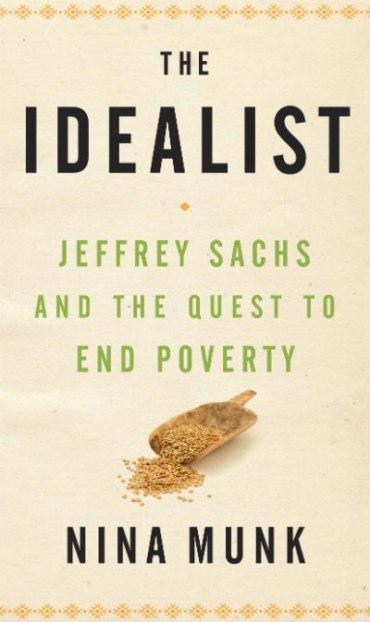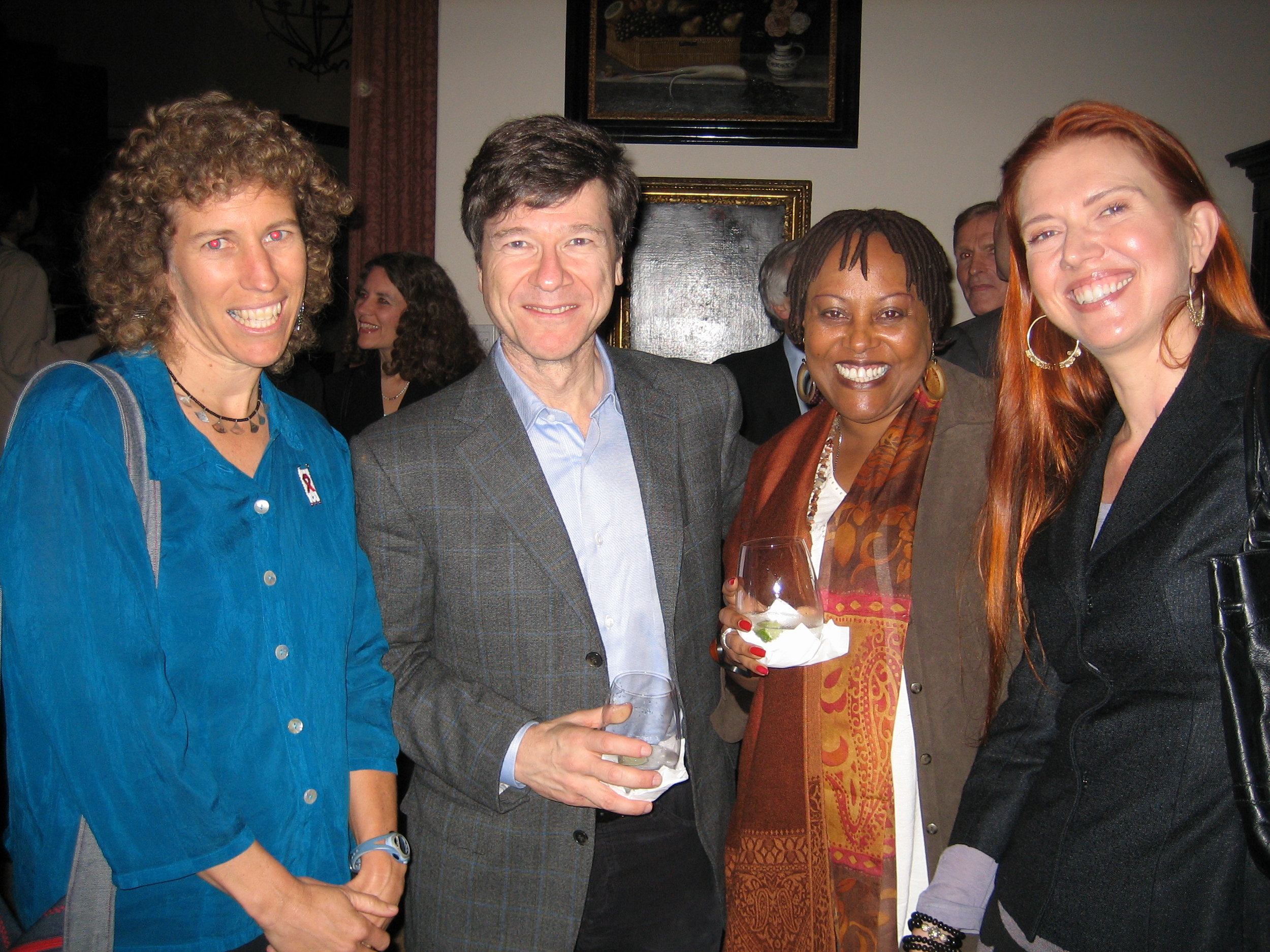Idealist, Cynic, or Realist? Nina Munk’s critique of Jeffrey Sachs’ Millennium Villages
 When I heard about Nina Munk’s new book on Jeffrey Sachs’ Millennium Villages Project, I was eager to read it. I’ve kept my ears open for stories of the Millennium Villages since they started in 2006. While I never believed their model of a standard prescription for eradicating poverty in Africa would work, my inner optimist hoped against hope that I was wrong. Over the last few years, I had seen a few articles that showed things were not moving according to plan. Nina Munk’s book goes further into two villages – one in Kenya and one in Uganda – to see how the Millennium Villages model plays out.
When I heard about Nina Munk’s new book on Jeffrey Sachs’ Millennium Villages Project, I was eager to read it. I’ve kept my ears open for stories of the Millennium Villages since they started in 2006. While I never believed their model of a standard prescription for eradicating poverty in Africa would work, my inner optimist hoped against hope that I was wrong. Over the last few years, I had seen a few articles that showed things were not moving according to plan. Nina Munk’s book goes further into two villages – one in Kenya and one in Uganda – to see how the Millennium Villages model plays out.
The book is an easy read, a bit like a travel log. It’s disappointing that it tends to focus on some of the logistical challenges that are common to projects implemented in remote places and not unique to the Millennium Villages model, rather than delving more deeply into the flaws of the original design of the Millennium Villages model.
Watch the book trailer for The Idealist: Jeffrey Sachs and the Quest to End Poverty.
Millennium Villages were meant to provide the infrastructure, material inputs, and training to allow poor communities to thrive. Munk quotes Sachs assuring a donor that “most of the work can be done in just one year.” But imported solutions rarely work the way they are intended. If it were that easy to end poverty, I would hope that the world would have ended it eons ago.
What I wonder is how so many well-informed people at the helms of large institutions were convinced that this model could work? Perhaps it was the attractiveness of such a simple solution compared to the complexity and time-investment of actually working with the community to address their own priorities.
Part of what may have been so appealing about Jeffrey Sachs was his anger about the way things were, about unnecessary deaths that had simple, cost-effective solutions. I am with him on this. It is outrageous. But how we work on ending poverty is of the utmost importance. One brilliant individual, or even a team of researchers, cannot solve poverty on their own.
In 2006, the Foreign Policy Roundtable of Los Angeles invited Firelight to bring one of our African partners to serve as a counterpoint to a presentation Jeffrey Sachs was making to leaders in the news and entertainment industry. Sachs was at the height of his rock star like fame and the roundtable was well attended. We invited our Rwandan partner, Mary Balikungeri to the roundtable.
Balikungeri is the founder and director of Rwanda Women Community Development Network, or RWN. RWN supports survivors of sexual violence, children, and youth with three core programs: health care and counseling, human and legal rights education, and socioeconomic empowerment. Since its start in 1997, the network has improved the lives of thousands of women and children.
Mary Balikungeri spoke about the transformative impact of engaging the community in response to the HIV pandemic, both complementing and challenging Sachs’ more widely publicized approaches to development. She was able to introduce many of the audience members – some who had never before heard a community-based leader from Africa speak – to the importance of local leadership and long-term commitment to social change in Africa. She argued that African-led responses with a high degree of community involvement are more sustainable than projects designed by outsiders with little local involvement.
Fast-forward seven years to our present moment. Nina Munk has devoted most of this time to visiting two Millennium Villages and understanding their story. These villages are struggling as funding is running out. I am reminded of Mary Balikungeri’s words. It is discouraging that millions and millions of dollars seem to have been used to confirm once again what doesn’t work.
Munk’s book has thrust Sachs back into the limelight. He wrote a September Op-Ed in the New York Times, bookended with inspiring JFK quotes. He criticized cynicism and pointed out the gains made in Africa over the last few decades. It held true with a passage from Munk’s book (never mentioned in his editorial) that any attack on the project was treated as “deep-rooted cynicism” about foreign aid and development.
If I use my head, my education, and my connections with African community leaders, I’d rather be labeled a realist, than a cynic. I grapple daily with the difficult realities of working in the field of development. I have hope about development in Africa, but it is different than it was the first day I started learning about Africa and development. It is tempered with reality, and what I have learned along the way.
When development is sustainable, it happens from the ground up. It is locally-motivated and draws on the resources and first hand knowledge that people hold of their own communities. It is slow to unfold. It requires constant stewardship of layers of stakeholders – from community members to community leaders to district officials on up. The stories that give me hope about development in Africa were not in Nina Munk’s book or in Jeffrey Sachs’ book. These stories come from daily interaction with people deeply committed to improving their communities. These people will still be there working when the funding runs out.

